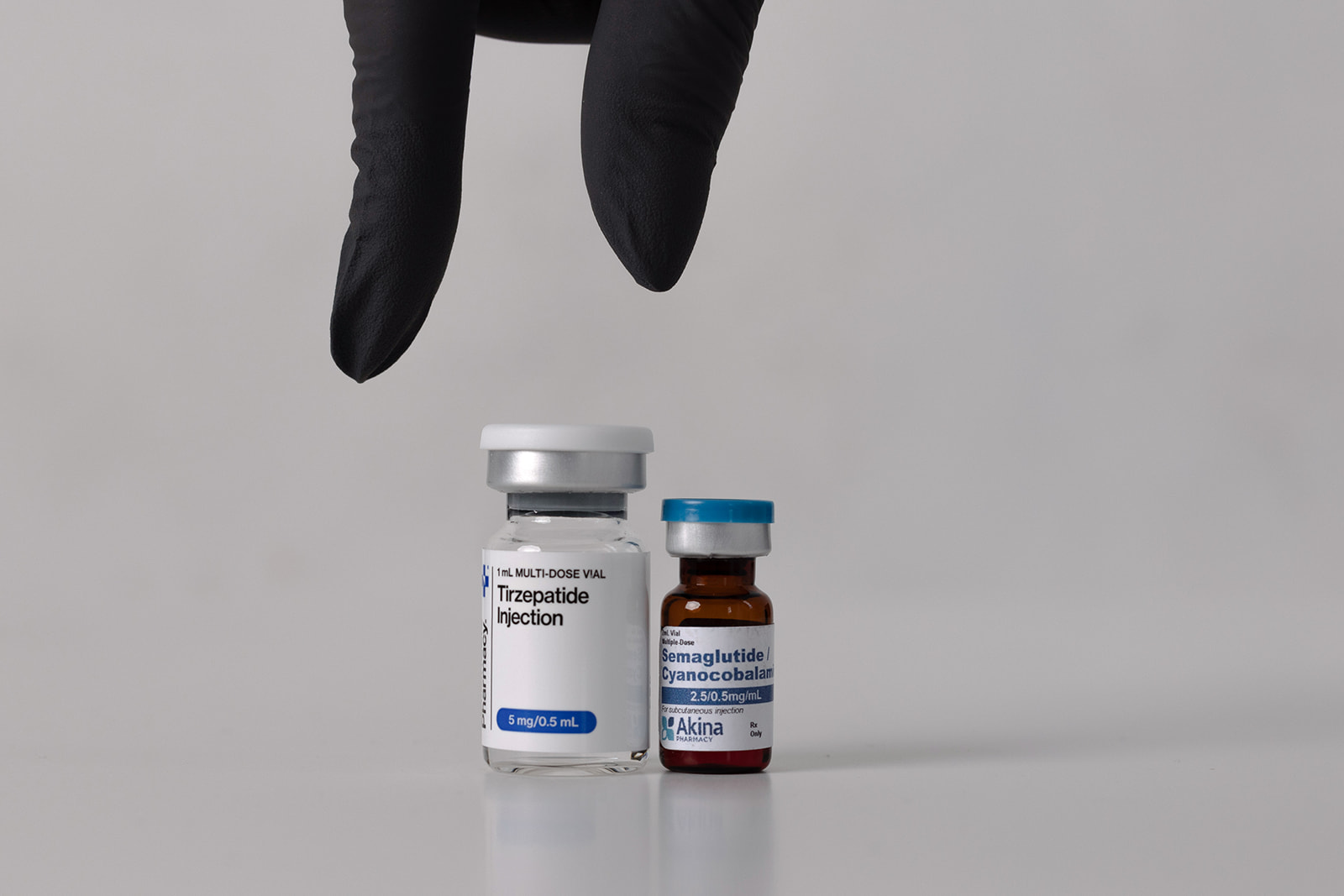Peptides for Weight Loss: What They Are, How They Work, and What to Ask Your Provider
Disclaimer: This content is for informational purposes only and does not constitute medical advice. Always consult a licensed healthcare provider before beginning any treatment. Peptide therapies, including GLP-1 receptor agonists, must be prescribed and monitored by a medical professional based on individual health needs.
According to the CDC, nearly 4 in 10 adults in the U.S. met the criteria for obesity between August 2021 and August 2023. Middle-aged adults (ages 40–59) had the highest rates, affecting both men and women at similar levels.
With obesity impacting millions, science-backed treatments that support metabolic function are gaining attention. For those who haven’t found success through traditional diet and exercise alone, medical peptide therapy may offer a new approach. These molecules work by supporting the body’s natural systems — including appetite regulation, blood sugar balance, and fat metabolism.
What Are Peptides?
Peptides are short chains of amino acids — the fundamental components of proteins. They act as messengers in the body, helping regulate biological functions such as hormone release, inflammation, healing, and metabolism.
How Peptides Support Weight Management:
- Appetite Regulation: Certain peptides influence hunger signals to promote earlier feelings of fullness.
- Metabolic Efficiency: They can support how the body burns energy and uses stored fat.
- Insulin Sensitivity: Peptides may help balance blood sugar and reduce cravings, supporting sustained energy and reduced fat storage.
Medical Use of Peptides in Weight Management
Peptides have been studied for a range of medical uses, including:
- Supporting healthy metabolic function
- Promoting recovery and muscle retention during fat loss
- Helping regulate hormone signaling and inflammatory responses
Peptides may be used as part of a comprehensive wellness plan to help manage weight through biological optimization, when guided by a licensed provider.
Types of Peptides Used in Weight Support Programs
Note: The following categories describe types of peptides that may be used in a medically supervised setting. Not all are FDA-approved for weight loss, and some may be prescribed off-label at a provider’s discretion.
1. Receptor-Based Metabolic Peptides
These peptides mimic naturally occurring hormones involved in appetite and blood sugar regulation. They work by activating specific receptors that signal the body to feel full, delay gastric emptying, and improve insulin sensitivity. These effects can help individuals reduce caloric intake, control cravings, and improve overall metabolic balance.
Used consistently under medical supervision, they may support:
- Reduced hunger and increased satiety
- Improved blood sugar control
- Enhanced weight management when combined with healthy lifestyle habits
2. Growth Hormone Secretagogues
These peptides stimulate the body’s own production of growth hormone, which can help:
- Preserve lean muscle mass during fat loss
- Increase energy and recovery
- Enhance fat oxidation (using fat as fuel)
Examples of peptides in this category include analogs that stimulate natural hormone rhythms. When paired with fitness routines, they may promote a more toned physique while improving metabolic resilience.
3. Fat-Mobilizing Peptide Fragments
Some peptides are engineered to specifically target stored fat without negatively impacting muscle. These are often used in body composition protocols, especially where fat loss from specific areas (like the abdomen) is desired.
They work by mimicking natural enzymes that signal fat breakdown, supporting a reduction in fat mass when combined with appropriate nutrition and exercise.
4. Peptides That Influence Appetite and Energy
Certain investigational peptides may modulate neurochemical activity tied to hunger and fullness cues. Others can support energy, endurance, and even pigmentation, though their use for weight loss is still considered experimental in many cases.
These peptides are sometimes used in aesthetic and wellness settings but should always be prescribed with full transparency regarding risk, benefit, and intended use.
Are Peptides Safe for Weight Loss?
When prescribed and monitored by a licensed provider, peptide therapies are generally considered well-tolerated. Side effects may include:
- Mild nausea or fatigue
- Redness at the injection site
- Water retention
- Headaches
Not every individual will experience the same response, and ongoing medical oversight ensures your safety and progress.
What Results Can You Expect?
| Timeline | Expected Results |
| Week 1–4 | Increased energy, reduced appetite, improved focus on healthy eating habits |
| Week 5–8 | Early fat loss and visible changes in body composition |
| Month 3–6 | Greater definition, fat reduction, and improved metabolic lab values (in some cases) |
| 6+ Months | Long-term weight maintenance and enhanced wellness when paired with lifestyle change |
Success Factors That Influence Outcomes
- Consistent Dosing: Adherence to your treatment schedule is critical for optimal outcomes
- Dietary Choices: A nutrient-dense, balanced diet supports metabolic health
- Physical Activity: Exercise enhances fat-burning and muscle preservation
- Sleep and Stress Management: Both play a major role in hormonal regulation
- Regular Medical Oversight: Ensures your therapy stays safe, effective, and personalized
Peptide Therapy vs. Traditional Weight Loss Options
| Category | Peptide Therapy | Conventional Methods |
| Mechanism | Targets root biological processes like hormone regulation | May rely on appetite suppressants or calorie restriction alone |
| Personalization | Fully customized and physician-guided | Often generalized programs |
| Side Effects | Usually mild and monitored | Can vary widely based on medications used |
| Sustainability | Supports long-term metabolic balance with behavior change | May require ongoing medication to maintain weight loss |
Ready to Explore a Science-Based Approach to Weight Loss?
At Profile Aesthetics, we offer evidence-informed weight management programs, including customized peptide therapies. Our approach combines medical oversight with lifestyle coaching to support safe, sustainable results.
📞 Contact us today to schedule your private consultation. We’ll help you discover whether peptide therapy is the right fit for your goals and guide you every step of the way.


